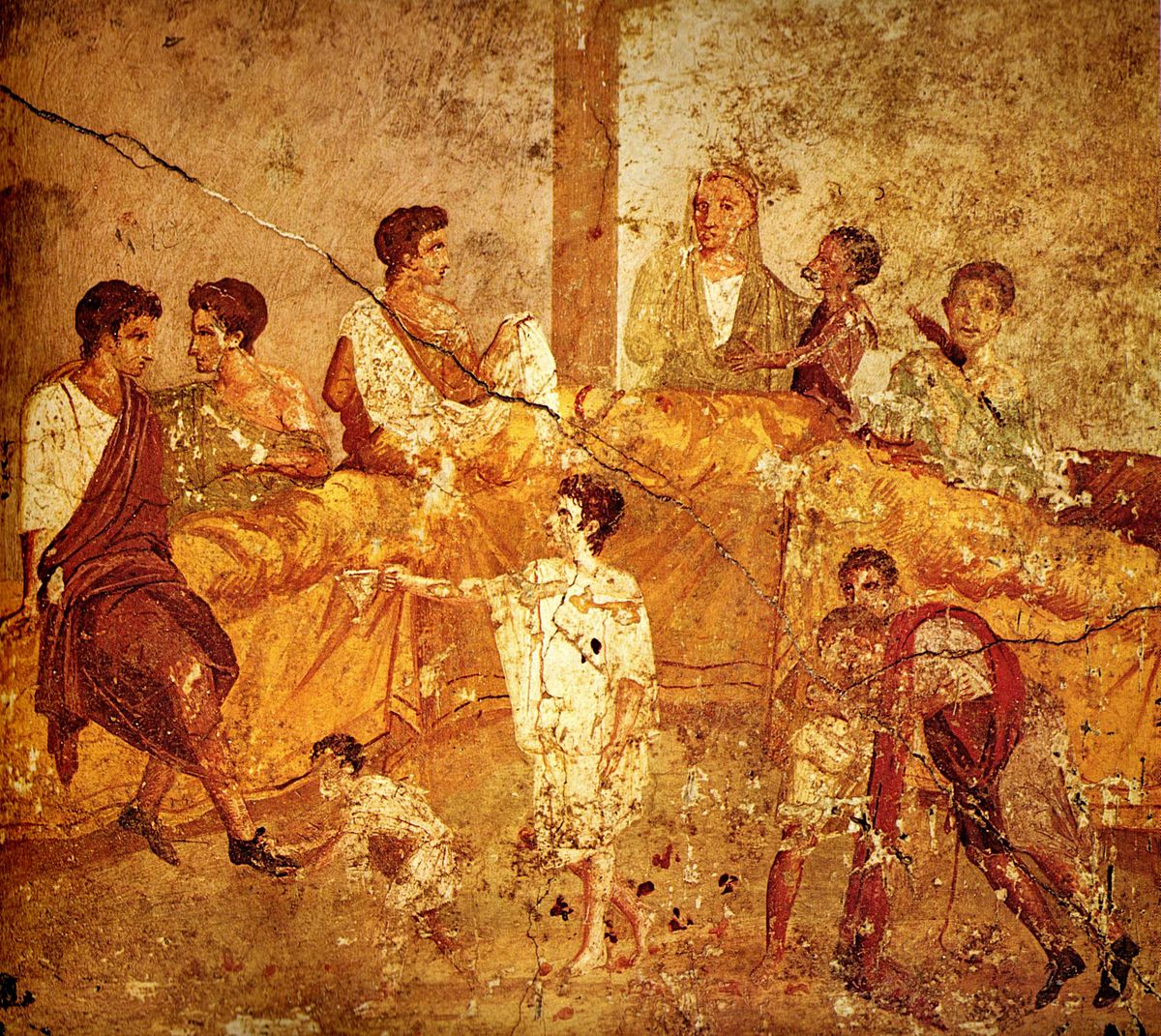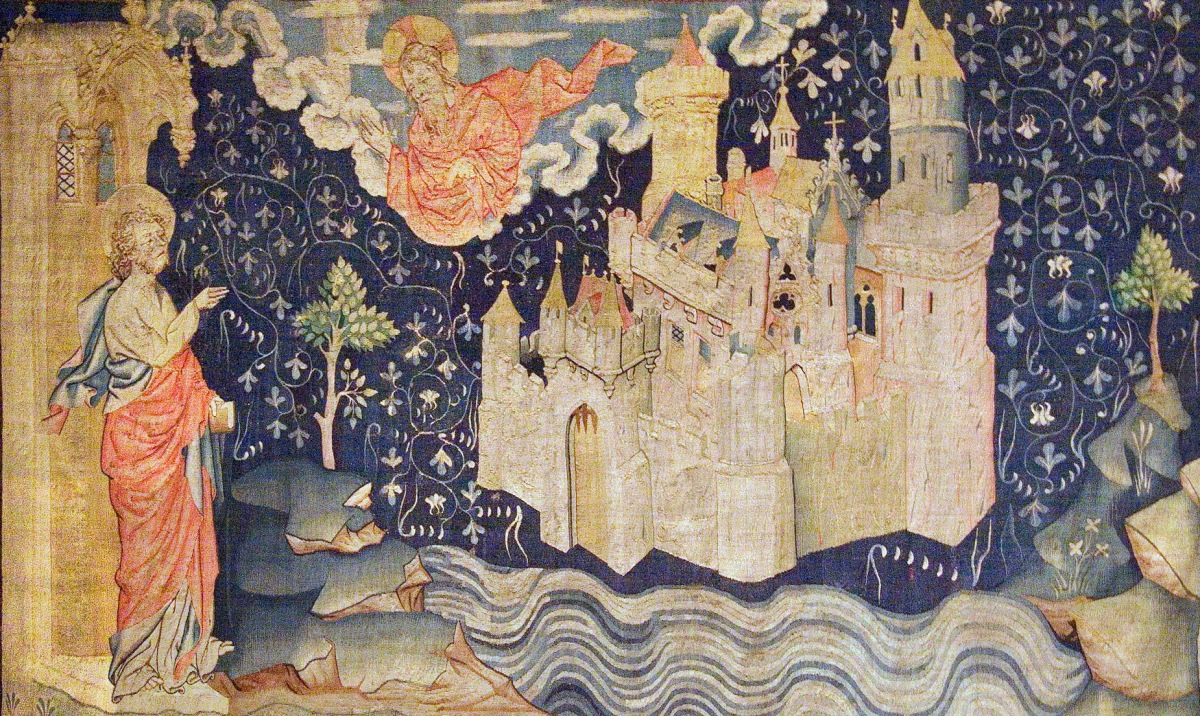What we must admit is that there are no clearly stated prohibitions against abortion in the New Testament. However, early Christianity—having itself consisted of Jewish adherents to the Way in the first decade after Christ’s ascension— continued to adopt their moral understanding of various issues from Judaism. We, first, look the Jewish historian, Josephus (c. 37–100 CE) and what he wrote about the Jewish prohibition against abortion. It was a prohibition according to Jewish law.
The law, moreover enjoins us to bring up all our offspring, and forbids women to cause abortion of what is begotten, or to destroy it afterward; and if any woman appears to have so done, she will be a murderer of her child, by destroying a living creature, and diminishing humankind: if anyone, therefore, proceeds to such fornication or murder, he cannot be clean.
(Against Apion 2.202)
The Ten Commandments were used by early Christians just as they were by Jews—as teachings that pertained to moral living. Notably, the sixth commandment, “You shall not murder,” was given a greater exposition in Christian thinking and applied specifically to the termination of a pregnancy. When in the late first, early second century, a document known as Didache was written, attention turned to the sixth commandment and stated, “You shall not murder … you shall not engage in sorcery; you shall not abort a child or commit infanticide” (2.2). This document understood the sixth commandment as extending to the unborn. The reason I included “sorcery” as a part of this understanding is that the Greek term translated “sorcery” is the word from which we get “pharmacy.” Therefore, “sorcery” here likely included taking abortifacients—drugs that induced miscarriage. Our modern understanding of the sixth commandment was clearly understood as extending to the life of the unborn.
Also in keeping with the Mosaic Law, the paths of life and death (Deuteronomy 27–28) are recast as darkness and light in another early Christian writing.
But the path of darkness is crooked and full of cursing, for it is the path of eternal death and punishment, in which way are the things that destroy the soul … Here are they who are persecutors of the good, haters of truth, lovers of lies; they who know not the reward of righteousness, who cleave not to what is good nor unto just judgment … murderers of children.
(Epistle of Barnabas 20.1–2)
Christian writers believed that life in the womb was no different than life outside it. Clement of Alexandria (c. 160–215 CE) inferred from Luke 1:41 when John leaped in Elizabeth’s womb that very belief (Instructor 2.10.96). Athenagoras, in the late-second-century, pointed to Christianity’s rejection of abortion as proof that Christians were moral when he wrote that the Christians “say that those women who use drugs to bring on abortion commit murder, and will have to give an account to God for the abortion” (Leg. 35).
Later church councils forbade abortion and actually levied punishments against any who murdered their unborn. The Council of Elvira (c. 4th century) reflects such beliefs.
If a woman conceives in adultery and then has an abortion, she may not commune again, even as death approaches, because she has sinned twice. (Canon 63)
A catechumen who conceives in adultery and then suffocates the child may be baptized only when death approaches. (Canon 68)
Even some of the most notable early church theologians supported this stance. Both Augustine (c. 354–430) and John Chrysostom (c. 347–407) viewed abortion as murder, and exposure—abortion’s ugly cousin—was no less an evil.
Moses’ Law encouraged caring for orphans (Exodus 22:22–24; Deuteronomy 14:29).[1] God administered justice for orphans, so Israel was not to pervert justice towards them (Deuteronomy 10:18; cf. 24:17; 27:19). The Essenes—a Jewish sect that lived around the Dead Sea in the first century CE—were known for taking them in and caring for them. Their community resembled a modern idea of a monastery in that everything was common property. Josephus records that they would take in children not their own because they did not wed, and they would care for those children and teach them their ways (Wars 2.8.2).
I don’t wish to enter into a discussion about the legitimacy of orphanages or children’s homes, but the order of widows cared for orphans as a part of their ecclesial duties.[2] Theologically, caring for orphans is missional in its practice. Even Jesus was adopted by Joseph, and Christ identified Himself with the “least of these my brothers” (Matthew 25:40). To care for orphans is to see Christ in the orphan as one of the least of those in society. As Christians, we have been adopted into God’s family. We are orphans made children by adoption through Christ (Romans 8:15, 23).[3]
A testimony of early church history also demonstrates that such were cared for by Christians. The late first-century bishop, Clement of Rome wrote, “Let the [elders] be compassionate and merciful to everyone—bringing back those who wander, visiting all the sick, and not neglecting the widow, the orphan, or the poor.” The second-century Greek apologist, Aristides, wrote that Christians “do not turn away their care from widows, and they deliver the orphan from anyone who treats him harshly.” The second-century Christian work, Shepherd of Hermas, noted, “Therefore, instead of lands, buy afflicted souls, according as each one is able. And visit widows and orphans.”[4]
Christianity’s stances on exposure led to a shift in Roman law in later years.[5] By 374 CE, one could incur a penalty for exposing a child. Obviously, by this time, Constantine had reigned and obliterated the persecution of Christians with Christianity later becoming the state religion in the Roman Empire. This elevation of the faith was good in some respects but bad in others. The good that came from the legalization of Christianity and its adoption as the state religion was that Christian theology began to have a say in legal matters.
The Cappadocian Fathers of the fourth century, as well as Latin theologians, helped shape the thinking of the Empire with some of them even having strong connections in government, For example, the Cappadocian Father, Basil the Great was familiar with Julian the Apostate since the two had been educated together. These two figures began competing, Basil through Christianity and Julian through the pagan rites, to win the hearts of people to their respective faiths. By this time, however, paganism had little influence but Christianity flourished.
With abortion as with exposure, while a rather defined orthodoxy was to not abort or expose children, not all Christians were blameless in these areas. Christians both participated in aborting unborn and exposing newly born infants.[6] One may wonder why these unique features taught in Christianity were violated by adherents to the faith. After all, wouldn’t that make these unique features unworthy of the world? Would it not nullify the faith of Christ itself and might we be justified in labeling those who did such “hypocrites?” The frustration is inevitable. However, there is no excuse for why Christians did such things.
I might remind the reader that many of the writings that comprise the New Testament were written as reactionary letters to communities of faith who were skating perilously close to an edge of heresy or infidelity to God. Christians are no different from any other person or group of people. We have our trials and temptations. We try rather hard to weather the storms, but despite our profession of faith, we still sin. It may be with a purpose that Christians sin, and sometimes it may be accidental. We still sin. However, the lives we are supposed to live are to be mirrored after that of Christ Himself. Yet, we often fall short. The early Christians did, and we still do today. If we can but recapture the uniqueness of our faith once again, perhaps we’ll be able to make the kind of changes that those believers did in their own time
[1] The Hebrew term often translated as “fatherless child” in the NKJV is elsewhere translated as “orphan” (cf. Lamentations 5:3; Malachi 3:5), so when I mention orphan and you reference the passage to find the translation as “fatherless child,” I’ve referenced from the Hebrew and not the English. Interestingly enough, many passages where “orphan” appears also has “widow” in the same verse or immediate context. At other places, “stranger” appears alongside them both. The point being that God cares for those most vulnerable to abuse in society. It must be mentioned that the Thebans outlawed exposure, but allowed the sale of children. This is the only recorded government, alongside the practice of Jews and Christians, to have taken a rather different approach for the newborn when compared to the rest of the ancient world.
[2] See Michael J. Gorman, Abortion and the Early Church: Christian, Jewish and Pagan Attitudes in the Greco-Roman World (Eugene: Wipf and Stock Publishers, 1982).
[3] Russell D. Moore, “Abba Changes Everything: Why Every Christian Is Called to Rescue Orphans,” Christianity Today 54, no. 7 (July 2010): 18–22.
[4] David W. Bercot, ed., A Dictionary of Early Christian Beliefs, s.v. “Orphans and Widows,” 1998.
[5] See Joshua C. Tate, “Christianity and the Legal Status of Abandoned Children in the Later Roman Empire,” Journal of Law and Religion 24, no. 1 (2008/09): 123–41.
[6] Everett Ferguson, Thinking-Living-Dying: Early Apologists Speak to the 21st Century (Vienna: Warren Christian Apologetics Center, 2011), 27, 29.



